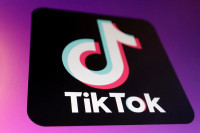Science & Technology
The promises and pitfalls of ChatGPT in Nepal
Experts say less than five percent of people in Nepal are using this new conversational chatbot, creating a digital divide.
Anup Ojha
ChatGPT (generative pre-trained transformer), a chatbot launched by the American AI company Open AI, has taken the tech world by storm, and is being talked about across the world. More than a million people had used it within a week of its launch in late November. Some used the chatbot to write stories about love, poetry in different forms and genres, while others used it for creative inspiration.
The buzzy chatbot developed by a research laboratory based in San Francisco, US is also responsible for tools like GPT-3, and DELL-E2, the breakthrough image generator that came out last year. The chatbot is capable of writing essays, stories, poems as well as solving maths and science problems and can produce working computer code.
Although the chatbot is reaching out to everyone, and people in developed countries are talking about its impact and possibilities, there has hardly been any public discourse on it in developing countries like Nepal.
As a test, the Post asked the chatbot to write a 500-word report on how Artificial Intelligence (AI) like ChatGPT impacts developing countries, by weighing both pros and cons. It immediately wrote answers with four positive and negative impacts each. In pros, it listed low-cost, improved access to information, job creation and increased efficiency. As disadvantages, it pointed out possible job losses, unequal access to technology, privacy and safety concerns, as well as ethical concerns.
Recently, ChatGPT successfully aced licensing exams for lawyers and medical doctors in the US.
But in the context of Nepal, the chatbot’s reach is limited.
“Only a handful of urban people are using ChatGPT in Nepal, and there has not been much discussion over its use here,” said Romkant Pandey, head of the ICT (Information and communication technology) Department at Tribhuvan University.
He said the majority of those taking advantage of the chatbot are those with fairly good English, and those in the Information Technology sector. “There is a risk that technologies like this might increase the digital divide in developing countries like Nepal,” Pandey said.
There are 38.38 million internet subscribers in Nepal as of mid-October 2022, according to a management and information system report by the Nepal Telecommunications Authority.
“But, in my estimate, less than five percent of our internet users have used ChatGPT,” Pandey added. “But this is just a personal estimate as there has been no good research on the issue.”
Last month, the New York City Department of Education blocked access to ChatGPT on its network devices due to fears about cheating, negative impact on student learning, and accuracy of content produced. In the West, a few educational institutions are even thinking of changing their education curriculum after the chatbot’s launch.
Stressing the negative impact of chatbot in Nepal, Pandey said AI tools like ChatGPT could have discriminatory effects on some sections of society due to unequal distribution of infrastructure, resources and technical expertise.
“At present, the five percent of the population who use this app will be able to utilise its expertise and reap the benefits, while the remaining 95 percent who cannot use or are not using the tool will fall behind,” said Pandey.
The revolutionary chatbot has become a great tool for computer learning, and solving many academic problems. In more developed parts of the world, the current discourse seems centred on concerns over its impact on education.
“I don’t see the chatbot making much of an impact in Nepal right now, but then as it can give you answer to almost any question, that might not always be the case,” said Ramesh Prasad Pokharel, assistant director and spokesperson at the National Information Technology Center under the Ministry of Communication and Information Technology.
However, the chatbot sometimes fails to give specific information, and it lacks the critical skills the human minds possess.
“One potential threat I see is its possible misuse by hackers who can use this platform to generate Java Script codes that can be used for hacking,” said Pokharel.
Nepal is vulnerable to data theft and all government websites are vulnerable to cyberattack.
On Saturday, hackers attacked hundreds of Nepal government websites, an incident that also hit international travel due to the shutdown of the immigration server.
Digital rights activists and AI experts, meanwhile, say with challenges brought by ChatGPT, there are possibilities too. For example, many educational institutions in the US have been forced into reevaluating their whole education system after the advent of this new revolutionary chatbot.
“This is really good if you have an open book exam system, but that is not the case in Nepal right now,” said Santosh Sigdel, an internet freedom advocate and president of Digital Rights Nepal. Under an open book exam system, the examinee can take to the exam centre notes and other resources as reference material. The goal is to teach students to apply their knowledge rather than to regurgitate what they cram.
Sigdel said if ChatGPT really catches on in Nepal, the country too could have open book exams.
Pokharel on the other hand said if the chatbot becomes as widely used as social media platforms like Facebook, Twitter and Instagram, this will make teachers more responsible, as students can check their knowledge of relevant issues.
Meanwhile, Pandey of TU’s ICT Department said the arrival of chatbots could create more opportunities for Nepal’s IT workers, even though it could also take away some jobs of content writers.
“Its immediate impact will be seen in content writing and mainly in the education system,” said Sigdel. For instance, some travel agencies in Nepal are already using ChatGPT to generate informative online content on travel destinations. Students can do their homework or solve their academic problems with the help of the chatbot.
Sigdel further said the positive thing about ChatGPT is that it is good at sourcing information from the vast pool of knowledge available online. “But the problem for developing countries like Nepal is that they have very limited locally-produced content online,” Sigdel said.




 15.12°C Kathmandu
15.12°C Kathmandu.jpg)










